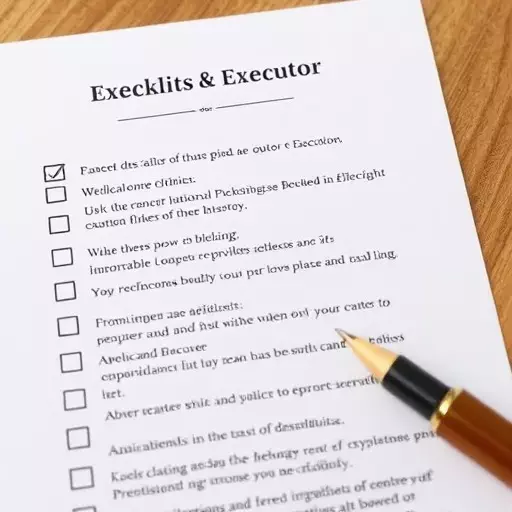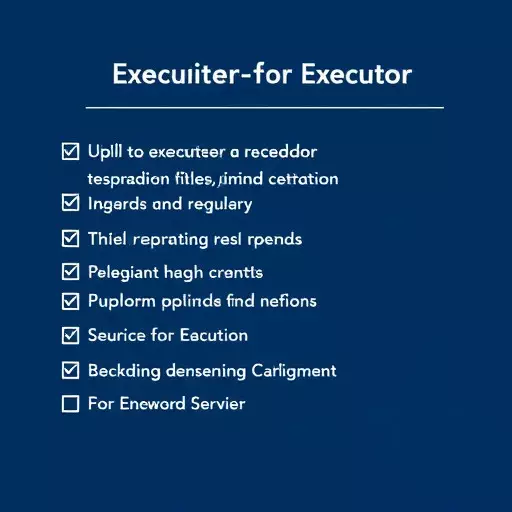Executor services in Palo Alto streamline complex estate planning scenarios involving trusts and wills. Key duties include asset identification, debt management, beneficiary notification, and record-keeping. Settling estate taxes involves asset gathering, tax compliance, calculation, on-time filing, and meticulous record-keeping to avoid penalties. Professional executor services simplify probate, provide expertise in tax regulations, and reduce stress for families during an emotional time, honoring the deceased's legacy.
As an executor, managing an estate involves numerous intricate tasks, especially when settling estate taxes. This comprehensive guide navigates the crucial role of an executor and their responsibilities, offering a clear understanding of the steps involved in a seamless process. From assessing assets to distributing remainders, every detail matters. For those in Palo Alto, California, considering professional executor services can ensure a smooth transition during what is often a challenging time. Discover how this support streamlines the administration, providing peace of mind for all involved.
- Understanding the Role of an Executor and Their Responsibilities
- The Steps Involved in Settling Estate Taxes
- Utilizing Professional Executor Services for Seamless Administration
Understanding the Role of an Executor and Their Responsibilities

Serving as an executor is a significant responsibility, especially in complex estate planning scenarios. In Palo Alto, California, executor services for trusts and wills are crucial in ensuring the smooth administration of an individual’s assets after their passing. The executor plays a pivotal role in upholding the wishes outlined in a will or trust document. Their primary duty is to manage and distribute the deceased’s estate according to legal requirements and the provisions specified in the legal documents.
Key among the executor responsibilities checklist is identifying and cataloging all assets, gathering necessary documentation, and managing any outstanding debts or taxes. They must also ensure that beneficiaries are appropriately notified and that distributions are made in a timely manner. Effective communication and record-keeping are essential aspects of this role, as the executor often serves as the primary point of contact between various parties involved, including attorneys, financial institutions, and beneficiaries.
The Steps Involved in Settling Estate Taxes

Settling estate taxes as an executor involves several key steps. Initially, the executor must identify and gather all assets, including real estate, financial accounts, and personal belongings. This step requires meticulous attention to detail, as every asset is crucial for accurately determining the total value of the estate. Once all assets are accounted for, the next phase entails sorting through various tax documents and forms required by the Internal Revenue Service (IRS). An executor needs to be well-versed in these regulations to ensure compliance and avoid potential penalties.
The executor then calculates the taxable estate, subtracting any exemptions and deductions allowed by law. This calculation is a delicate process, as it directly impacts the overall tax liability. After determining the taxable amount, the executor files the necessary tax returns within the prescribed deadlines. It’s essential to maintain thorough records throughout this process, as they serve as proof of compliance and can be crucial in case of any future audits. Additionally, the executor may need to pay the taxes due directly from the estate funds, ensuring a smooth transition for beneficiaries.
Utilizing Professional Executor Services for Seamless Administration

When settling estate taxes as an executor, considering professional executor services can significantly streamline the administration process. In Palo Alto, California, executor services for trusts and wills are readily available to assist in managing the complexities of probate and ensuring compliance with tax regulations. These professionals bring expertise and a keen understanding of the duties of an executor, which include handling financial matters, organizing documents, and overseeing distributions according to the deceased’s wishes.
Utilizing these services offers a comprehensive executor responsibilities checklist that covers every aspect of estate administration. From valuing assets and preparing necessary tax forms to managing potential disputes among beneficiaries, professional executors are equipped to handle these delicate matters with efficiency and accuracy. This approach can alleviate significant stress for family members during an emotional time, allowing them to focus on grieving and honoring the deceased’s legacy.


